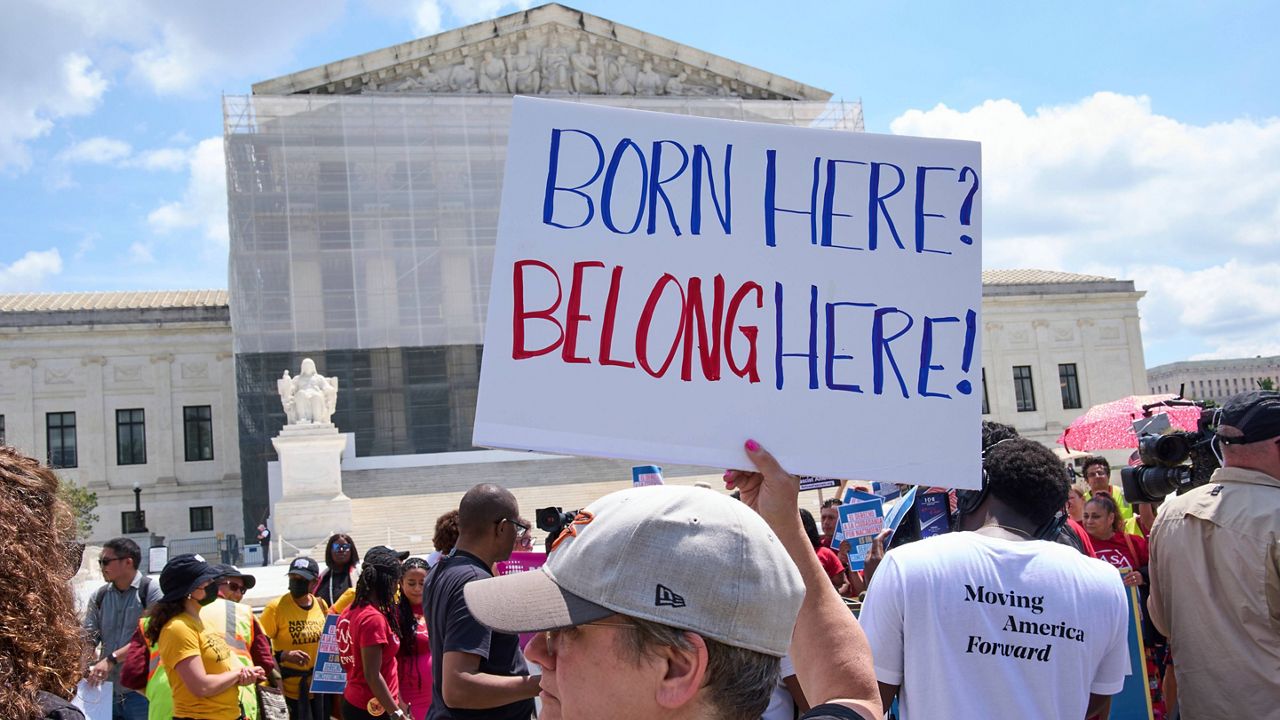WASHINGTON — President Donald Trump’s 2024 campaign trail pledges to eliminate taxes on tips, overtime pay and Social Security benefits for seniors morphed into three of the biggest policies he consistently said he wanted accomplished in his mega tax and spending bill as Republicans in Congress worked to craft the legislation and get it over the finish line.
With the massive legislation, dubbed the “one, big, beautiful bill” by Trump, officially through both the House and Senate and awaiting the president’s signature, there is little doubt the GOP will tout the policies as it now seeks to sell the bill to the American public.
Here is where Republicans landed on changes to those three new proposed tax cuts and what impact they are expected to bring.
The legislation temporarily allows workers to deduct up to $25,000 in income they earn from tips on the job in their federal income taxes. The amount workers can deduct decreases, however, for those making over $150,000 a year, or $300,000 a year for joint filers. The text of the bill puts the decrease at $100 for each $1,000 an employee makes over the $150,000 threshold.
The House version of the bill originally did not include a ceiling on how much can be deducted. The $25,000 cap was added when the Senate put its mark on the legislation.
The bill also permits workers to deduct income they make from overtime pay with a cap set at $12,500, or $25,000 in the case of a joint return. The deduction similarly phases out for those earning more than $150,000.
The new policies kick off this year but will expire in 2028, just before Trump is set to leave office.
The changes are a major victory for Trump, who made his "no taxes on tips" promise in particular a significant part of his economic pitch to voters in 2024 and shared just last week that the idea stemmed from an interaction with a waitress serving him in Las Vegas. But the full impact of the policies and how many people will be affected remains to be seen.
The policies apply to federal income taxes, meaning those who don’t make enough income in general to pay such taxes wouldn’t be impacted. A report released by The Budget Lab at Yale University last year, after a group of senators introduced a bill on the subject as Trump touted the idea on the trail, found more than a third of tipped workers fall into that category and therefore wouldn’t be affected.
Meanwhile, as some, including Independent Restaurant Coalition Executive Director Erika Polmar, pointed out, the policy would not apply to workers in jobs with similar wages who don’t have the opportunity to earn tips.
“We know Congress is trying to help workers at a time they need it most, and we are heartened to see the Senate listen to restaurant owners and take steps to make child care more affordable to restaurant workers,” Polmar said in a statement after the Senate passed the bill this week. “But restaurants and bars need a tax law that treats all businesses equally, not a patchwork of temporary policies that helps some workers and leaves others behind.”
She specifically pointed to line cooks, dishwashers, porters and prep staff in restaurants.
The Budget Lab estimates that about 2.5% of Americans in the workforce in 2023 had a job in which they earned tips. For those who do qualify, the White House estimates their average take-home pay would increase by nearly $1,700 a year before the policy expires in 2028.
Polmar also argued the temporary nature of the provision would “force restaurants using popular service-charge models to make costly changes to their businesses this year and again in 2028.”
Others, such as National Restaurant Association Executive Vice President Sean Kennedy, however, praised both the tips and overtime tax breaks in the wake of its passage in the Senate this week.
On overtime, meanwhile, there were 97.7 million employed workers in the U.S. who were eligible for overtime protections in 2023, according to the Labor Department. A separate report from the Budget Lab last year found about 8% of hourly workers and 4% of salaried workers work overtime on a regular basis.
When it comes to Social Security, the legislation includes a new $6,000 deduction for seniors who pay taxes on the income they make from the benefit. The deduction begins to phase out for those earning more than $75,000 and, like the new policies on tips and overtime, lapses in 2028.
The final $6,000 deduction amount was in increase from the $4,000 proposed in the House version of the bill.
The White House estimates the policy will result in 88% of seniors 65 and older paying no tax on their Social Security benefits. As it stands now under current law, however, 64% of seniors who receive Social Security benefits already don’t pay taxes on them, according to the same report from the White House Council of Economic Advisors.
The 88% figure means a portion of seniors receiving Social Security will still have to pay taxes on the benefits. Meanwhile, millions of other Americans who are not necessarily seniors — Pew Research Center found more than 7 million disabled workers receive benefits — receive Social Security and would not qualify unless they are 65 or older.










